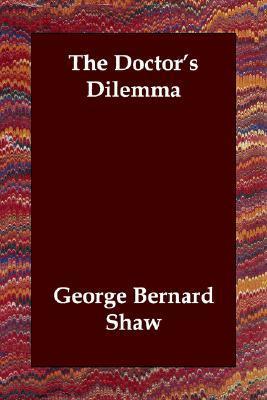What do you think?
Rate this book


72 pages, Paperback
First published January 1, 1906
It is not the fault of our doctors that the medical service of the community, as at present provided for, is a murderous absurdity. That any sane nation […] should go on to give a surgeon a pecuniary interest in cutting off your leg, is enough to make one despair of political humanity. But that is precisely what we have done. And the more appalling the mutilation, the more the mutilator is paid. He who corrects the ingrowing toe-nail receives a few shillings: he who cuts your insides out receives hundreds of guineas, except when he does it to a poor person for practice.And he goes on in fine form:
Scandalized voices murmur that these operations are necessary. They may be. It may also be necessary to hang a man or pull down his house. But we take good care not to make the hangman and the housebreaker the judges of that. If we did, no man’s neck would be safe and no man’s house stable. But we do make the doctor the judge […] I cannot knock my shins severely without forcing on some surgeon the difficult question “Could I not make a better use of a pocketful of guineas than this man is making of his leg...?”Shaw revels in scandalizing us by taking us back to Moliere:
Again I hear voices indignantly muttering old phrases about the high character of a noble profession and the honor and conscience of its members. I must reply that the medical profession has not a high character; it has an infamous character […] There is another difficulty in trusting to the honor and conscience of a doctor. Doctors are just like other Englishmen: most of them have no honor and no conscience...On the one hand, Shaw savagely attacks the inconsistency of doctors who, on a witness box claim they could have saved a patient had their advice and treatment been followed while claiming that they did all that was humanly and medically possible should their patient have died on their watch:
Thus everything is on the side of the doctor. When men die of disease they are said to die from natural causes. When they recover (and they mostly do) the doctor gets the credit of curing them.Shaw rants against “the craze for operations”:
There is a fashion in operations as there is sleeves and skirts: the triumph of some surgeon who has at last found out how to make a once desperate operation fairly safe is usually followed by a rage for that operation not only among the doctors, but actually among the patients.Once you understand Shaw’s outrageous and provocative perspective you can figure out the finer details of his position by the title of his essay's sections “Why Doctors do not Differ”, “The Successful Doctor”, “the Psychology of Self-Respect in Surgeons”, “Are Doctors Men of Science?”, “Bacteriology as Superstition”, “Statistical Illusions”.
SIR PATRICK: ...Suppose you had this choice put before you: either to go through life and find all the [paintings] bad but all the men and women good, or to go through life and find all the [paintings] good and all the men and and women rotten? Which would you choose?We are distracted from the medical ethical points which are so well made and developed in the preface by the machinery of extra-medical relationships and personalities Shaw sets up to spin his drawing room comedy. While the relationship between the six medical characters in the play is very finely drawn, throwing in a gifted, amoral, manipulative sick artist and his morally ambiguous and beautiful young wife to whom the main character feels attracted, distorts the more interesting aspects of medical ethics and debases the play to the point where the doctor’s dilemma becomes the far more primitive one of whether to save the artist and renounce the wife or to let the artist die in order to woo the widow.
RIDGEON: Thats a devilishly difficult question, Paddy. The pictures are so agreeable, and the good people so infernally disagreeable and mischevous, that I really cant undertake to say offhand which I should prefer to do without.